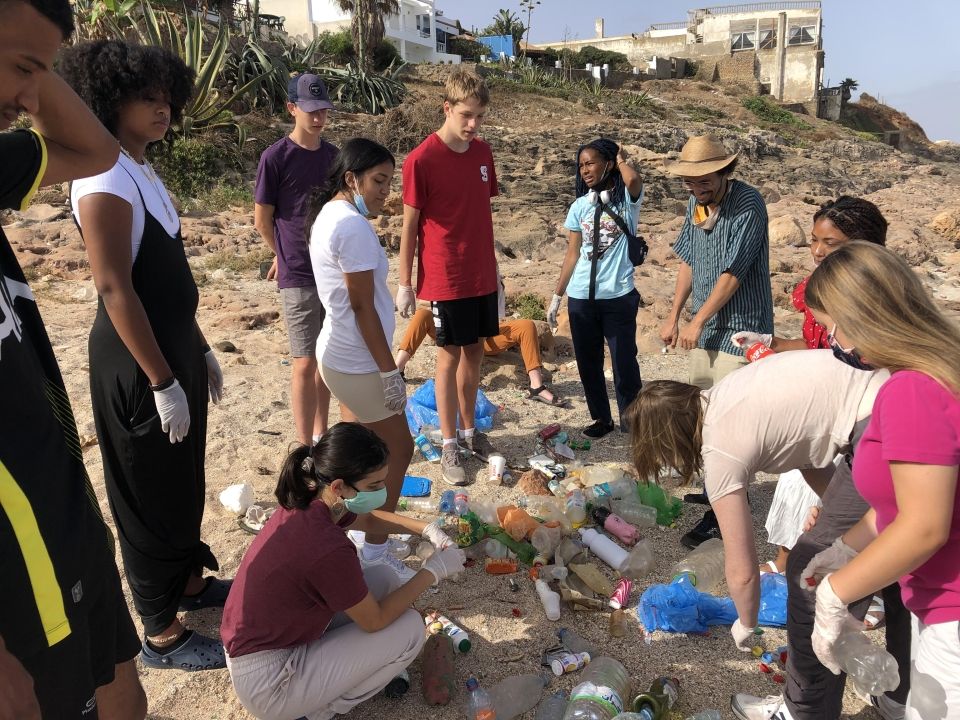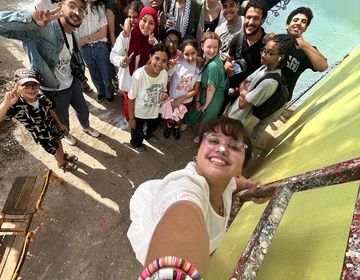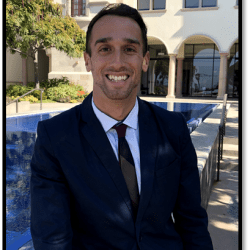Environmental Leaders of the Future
Starting on the ride from the airport to Rabat, many students questioned garbage and pollution in Morocco. This morning, the Outdoor Leadership group met with Hazim, one of the leaders of Morocco's Zero Zbil (Zero Waste) Movement. An early bus ride got us to Harhoura, a town south of Rabat to conduct an ocean and beach audit at a non-touristy beach to get a better sense of the health of local ocean and the types of pollution washing up on shore.
The group broke into small teams and were tasked with gathering items washed up from the ocean on the rocks and dropped on the sand by people visiting the beach. Once a massive pile of garbage was quickly gathered by the group, Hazim asked the students to sort the items into categories: plastic bottles and caps, aluminum cans, fishing materials, styrofoam, plastic bags, Q-tips, etc. Even with the relatively small sample size compared to the enormity of the beaches near the Moroccan capital, Hazim explained that the items gathered were very representative of a typical beach audit conducted by his organization, showing a wide variety of types of pollution typically found around Morocco. The students asked questions about how these items, often not associated with oceanic pollution, end up in the seas. Hazim explained how cultural norms contribute to certain types of pollution in Morocco and how those compare and differ from other parts of the world.
Following the outdoor portion of the audit, the students returned to the CIEE center in Rabat to learn more from Hazim about what his non-governmental association is doing in Morocco to put pressure on the government and large companies to refuse, reduce, reuse, recycle, and repair. Seeing the pollution first hand helped students to understand the complexity and nuances of the global pollution problem along with breaking myths about what is and is not recyclable. This information is extremely helpful for them as they consider their final projects and how they can make a difference in their lives moving forward.

Related Posts
Weekend in Marrakesh
Our Weekend in Marrakesh - This blog was written by one of our students - Nyx Lange Reflecting on our past weekend excursion to Marrakesh from our Moroccan base of... keep reading

Student Spotlight - Sarah Mathew, Memories in Morocco
Throughout these past 3 weeks, I have immersed myself in the rich culture and diversity of Morocco. This program has given me a sense of community and has helped me... keep reading

Lessons from Ait Bouhaddou
Our students have truly embraced the idea that " everything is a learning experience." Last weekend, we traveled south of Morocco to one of its imperial cities: Marrakesh, the red... keep reading
